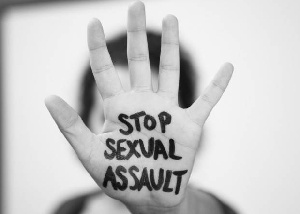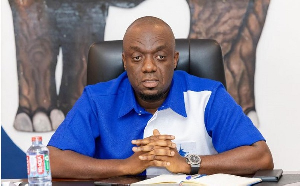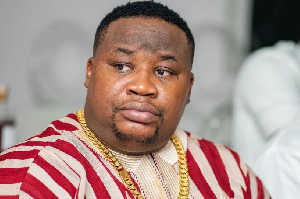“So many years past being raped, I tell myself what happened is ‘in the past.’ This is only partly true. In too many ways, the past is still with me. The past is written on my body. I carry it every single day. The past sometimes feels like it might kill me. It is a very heavy burden.”
These words from “Hunger a memoir of (My) Body” by Roxanne Gay are more or less the exact words a victim of sexual assault told me when she confided in me about her rape issue, unfortunately, that was the second time she has been raped after a friend talked her out of killing herself years ago when she was raped the first time.[1]
In recent years, sexual assault against women has been judiciously studied and not only have these studies found varying rates of prevalence of sexual assault, but have discussed that sexual assault is one of the most underreported amongst violent crimes. This is quite surprising, considering the rate of recurrence. These studies have shown that demographic characteristics such as gender, age, and education, as well as the offender-victim relationship, play a significant role in the reporting of sexual assault by victims.
Demographic characteristics such as gender, age, and education, as well as the offender-victim relationship, play a significant role in the reporting of sexual assault by victims.
Specifically, in Ghana, where sexual assault has received very limited research attention, the few studies have focused either on minors or broadly on violence against women. In the case of examining the causes of domestic violence in Ghana, it was observed that the educational level of women significantly foretells the level of marital violence they will experience.
Most women disclose their assault experiences to informal sources instead of reporting to the police. Many reasons can be given to explain this pattern of victim behaviour; however, the most reasonable explanation is that the victim is most likely to receive reassuring feedback when disclosing sexual assault experiences to informal source than when reporting to the police. Further, victims’ desire to disclose abuse to casual or familiar source other than the formal agencies may also be due to the officials’ attitudes toward the investigation of the incident. Officials’ attitudes toward rape investigations in Ghana redirect the clichéd beliefs that Ghanaians in general hold regarding rape and victims of rape.
Officials’ attitudes toward rape investigations in Ghana redirect the clichéd beliefs that Ghanaians in general hold regarding rape and victims of rape.
Specifically, some police officers attempt to shift blame for the crime from the suspect to the victim by blaming the victim for encouraging the occurrence of the event. Moreover, some police officers may even instruct victims to be aware of male propensities and take action to avoid being victimized. I remember there ware media reports in 2014, by one of the media outlets in Ghana that a physically challenged young woman had been raped. The report noted that the victim was warned by the police to be careful of men and avoid entering men’s rooms. This was an indirect way of saying the woes that befell the young lady were due to her carelessness in entering the rapist’s room, therefore, blaming the victim for the rape incident. These attitudes of the police, as mentioned, can be placed within the broader Ghanaian cultural context which is based on patriarchal beliefs.
Sadly, Ghanaians tend to support rape myths and habitually blame the victim for the crime committed against her. These individuals also hold the belief that victims could have avoided the incident by modifying their behaviour in some way. An example is when a Minister for Gender and Social Protection said girls attract rape when they wear short skirts while addressing students at a speech and prize giving day in March 2017, “If you wear a short dress, it’s fashionable but, know that it can attract somebody who would want to rape or defile you. You must be responsible for the choices you make,” she said. Such behaviours have serious implications that go beyond individual lines to affect the services and treatment available to victims of rape in the country. Again, such behaviour could negatively influence how the police as an institution handle reported rape cases.
The Minister for Gender and Social Protection said, “If you wear a short dress, it’s fashionable but, know that it can attract somebody who would want to rape or defile you. You must be responsible for the choices you make”.
Ghanaian criminal law recognizes incest, sexual harassment, child sexual abuse, and rape as sexual offences that attract firm punishment. The Ghana Criminal Act 1960 (Act 29) makes these engagements criminal and punishable by imprisonment. Section 98 of the Act restrictively defines rape as ‘the carnal knowledge of a female of sixteen years or above without her consent.’ it goes on to state that, ‘A person who commits rape commits a first degree felony and is liable on conviction to a term of imprisonment of not less than five years and not more than twenty-five years’. For a successful conviction, the law requires the victim to prove carnal knowledge or unnatural carnal knowledge upon trial. Proof of carnal knowledge or unnatural carnal knowledge is deemed complete upon proof of the least degree of penetration.
Not a day goes by without reading at least two rape and sexual violence stories on the internet either being reported as news or a victim coming out on social media. People are defiling children, raping young and elderly women. Regrettably, marital rape or spousal rape is the most underreported type of sexual assault in Ghana.
According to the victims who confided in me, those who reported their assaults to the police gave quite a few reasons for reporting. The most important reasons for reporting their sexual assaults were that they wanted the offender to be arrested and punished, some wanted to stop the incident from happening again or happening to other people by the offenders, a few wanted justice as the offenders were people they knew, and also they thought crimes should be reported so they did. And even with that, they expressed disappointment mainly because they felt they were unfairly treated by the police, for the reason that while they were reporting the incident, the police were either not interested in the case or were impolite to them. One victim said that the Commander told her, “There is no evidence and I’m not getting anything from your medical report. The law has created so many routes for offenders that’s why it says you must prove it beyond any reasonable doubt”. He asked the CID if she saw anything at the crime scene, she said no. In addition, he said “for a woman to be in a man’s room at that time of the day was questionable.” unfortunately, that is what a police commander said to a victim who went to report an assault at a police station without considering how she would feel or was feeling.
One victim said that the Commander told her, “There is no evidence and I’m not getting anything from your medical report. The law has created so many routes for offenders that’s why it says you must prove it beyond any reasonable doubt”.
Whereas the reason for others not reporting the incident was that the offenders were closer to them, some were even relatives, and other reasons mentioned included that their family solved it and that they felt the incident was not serious enough to be reported. And this issue right here is one of the biggest challenges we are facing here in Ghana, a lady gets raped and sometimes the family scold and mistreat her as if she caused it and to worsen the situation, they discuss the issue as a family problem leaving the victim with lots of doubt about objectivity and justice. To say again, Ghanaians, in general, accept rape myth and often blame victims for allowing themselves to be raped. This kind of belief has moved to a level whereby victims are even looked down upon and mishandled by the people that should serve as caretakers for survivors of sexual assaults. Rape victims need emotional and psychological support, something that must be a collective responsibility, and it is important people desist from judging rape victims because that can seriously affect them and when care is not taken, cause them to end their lives.
Sharing her experience, a victim broke into tears telling me how her mother at the slightest chance uses what happened to her to insult her and call her names and her father beating her every time she complains. Sometimes we overlook the trauma and emotional torture a victim might be going through and sadly that has its own health implications.
Sometimes we overlook the trauma and emotional torture a victim might be going through and sadly that has its own health implications.
How technology is helping with rape cases in Ghana
“Every time there’s a new tool, whether it’s Internet or cell phones or anything else, all these things can be used for good or evil. Technology is neutral; it depends on how it’s used” – Rick Smolan.
We all know social media is a powerful tool that has many professional and personal benefits which is why we use it. However, we do have control over how we build our online presence. Once again, the nation is talking about sexual assault, and the intense campaigns against domestic violence, rape, sexual harassment, and inequality have taken over the Ghanaian social media and the world at large birthing hashtags like #MeToo #WhyIdidntReport #RapeMustFall etc. It is said that it’s the punch you don’t see coming that knocks you out. But in the wider world, the reality we close our eyes to or reject is the one that weakens our most passionate efforts towards progress. Hashtags do have incredible power, as they are an effective and one of the easiest way to go through the disorder of social media and find related posts. But they also can take on a life of their own, becoming catchphrases that stir up social media movements and capture the attention of masses.
Once again, the nation is talking about sexual assault, and the intense campaigns against domestic violence, rape, sexual harassment, and inequality have taken over the Ghanaian social media and the world at large birthing hashtags like #MeToo #WhyIdidntReport #RapeMustFall etc
A popular Ghanaian blogger Jemila Abdulai of Circumspecte.com started the #Justice4her campaign speaking up and seeking justice for a four-year-old girl who was defiled and it had influencers, public figures, activists and regular people as well as the media taking the hashtag up to demand justice for the little girl on their social media handles because the police’s lack of action was “demoralizing”. Fortunately, the noise that was made paid off as the police finally started an investigation and also to the extent that people donated more than $4,000 through a GoFundMe account that was set up by someone in the US towards a reconstructive surgery for the victim.
A popular Ghanaian blogger Jemila Abdulai of Circumspecte.com started the #Justice4her campaign speaking up and seeking justice for a four-year-old girl
Not all victims are survivors and not all live to become survivors. But the ones that have been able to cope and come out of whatever trauma, emotional, physical and mental stress associated with sexual abuse or any form of gender-based violence and abuse are those I call survivors. Countless people have spoken out on social media about their experiences, posting their stories with the hashtags #WhyIDidntReport, #MeToo, #NoMore, #BelieveSurvivors, etc. to create awareness and help fight this heinous crime. Survivors have shared their experiences. Several expressed how inescapable the trauma from a sexual assault can be. Some have shared it through artworks, digital photography and illustrations, short films and any creative way they can think of in other to help ease their pains. That pain is undeniably still pertinent to some the victims and even survivors, no matter how many years have passed and this has attracted other activists to join the campaign using hashtags like #TimesUp, #HeForShe, #YesAllWomen etc. to make them feel and know they are with them.
Several expressed how inescapable the trauma from a sexual assault can be. Some have shared it through artworks, digital photography and illustrations, short films and any creative way they can think of in other to help ease their pains.
Conclusion
How one stands up to any sort of problem in the heat of the matter reveals the strengths and nature of your character and that is why we have social campaigns and movements now. Technology is, of course, a two-edged sword, and I believe that social media campaigns can sometimes bring out the best in us, for instance, they have helped address sexual assault and other gender-based violence related issues. So I believe we can rely on technology to help solve some problems we tend to think are quite complicated to solve.
The police must be encouraged to cooperate fully with victims during the reporting process and avoid verbal attacks on victims since some women have bad experiences with the reporting process, it is important that reporting procedures and documentation be simplified to encourage reporting. Again, it would be best if the institutions create apps for victims to easily report with the little evidence they have before they even head to the hospital and police stations eventually to aid in investigations.
Additionally, the law does not permit that rape cases to be resolved at home so sexually assaulted victims should not delay in reporting to either DOVVSU or the hospital with all evidence they possess so action can be taken easily and the offenders dealt with effectively. Though it was not cited as a major reason, fear of reprisal is another reason women do not report sexual abuse especially marital rape to the police. Therefore, assuring women that they will be offered maximum protection against further victimization from the offender is a critical step in helping end this awful crime.
Technology is, of course, a two-edged sword, and I believe that social media campaigns can sometimes bring out the best in us, for instance, they have helped address sexual assault and other gender-based violence related issues.
Opinions of Friday, 26 April 2019
Columnist: genderit.org















